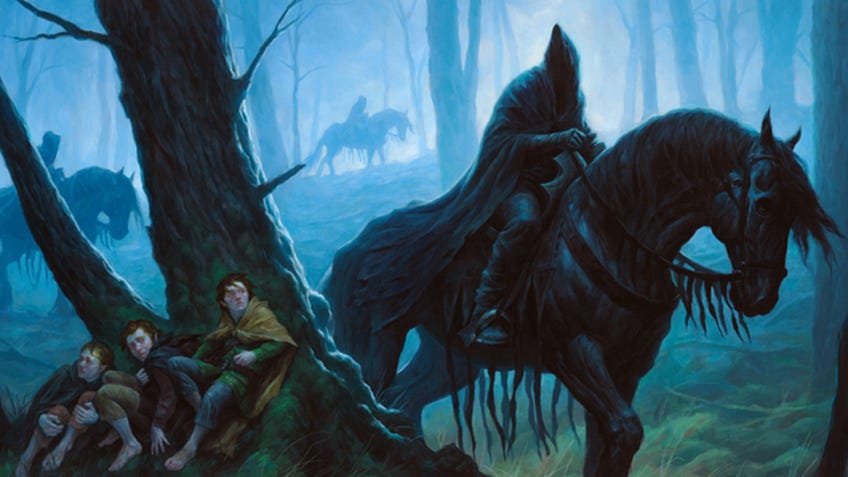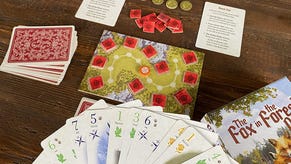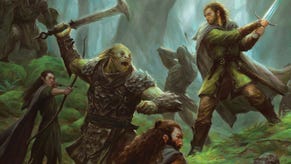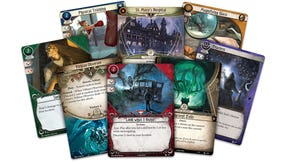“The impact of The Lord of the Rings: The Card Game can’t be overstated”: LCG co-designers discuss its decade-long legacy
Alongside its descendants and its future.
It’s been a decade since The Lord of the Rings: The Card Game was created by Nate French, with the co-op title continuing to be supported by co-developers Caleb Grace and Maxine Newman in the years since.
A living card game based on the world created by JRR Tolkien that has players teaming up with familiar faces to fight against the forces of Sauron, The Lord of the Rings LCG is currently on hiatus - with publisher Fantasy Flight Games yet to reveal what’s next in store for the title.
For its tenth anniversary, Dicebreaker sat down with French, Grace and Newman to discuss how the living card game came about, the challenges involved with keeping it going and its impact on the tabletop gaming industry as a whole.
How did The Lord of the Rings: TCG come about? Why a narrative-driven, co-op card game that would be continuously updated?
Nate French: I was at Gen Con in 2007. And I was judging tournaments in the CCG hall. CCG players did something called gold fishing, where they would deal themselves a starting hand and then play-through a couple imaginary turns against an imaginary opponent. To just get a feel for the deck in a quick practice run or just habitually over and over to see what kind of draws they get.
The theme of fellowship and working together translates really well to a cooperative game.
I was watching this and then was talking about it with a friend after a show on Sunday night, and I thought: if CCG players already have this behaviour, what if there was a game where that just was the whole game and you could just play it solo? Coming back the next year, I pitched the idea to Christian Petersen - he was the CEO of Fantasy Flight Games at the time - and he really loved the idea. He asked me if the game could also be played cooperatively, instead of solo and I hadn't considered that. But I thought about it and said, yeah, I don't see why you wouldn't be able to do it that way.
Christian was able to obtain the Lord of the Rings licence and put the opportunity in front of me and said: “Could you make this work?” And I was like “Yeah, I think that would be perfect.”
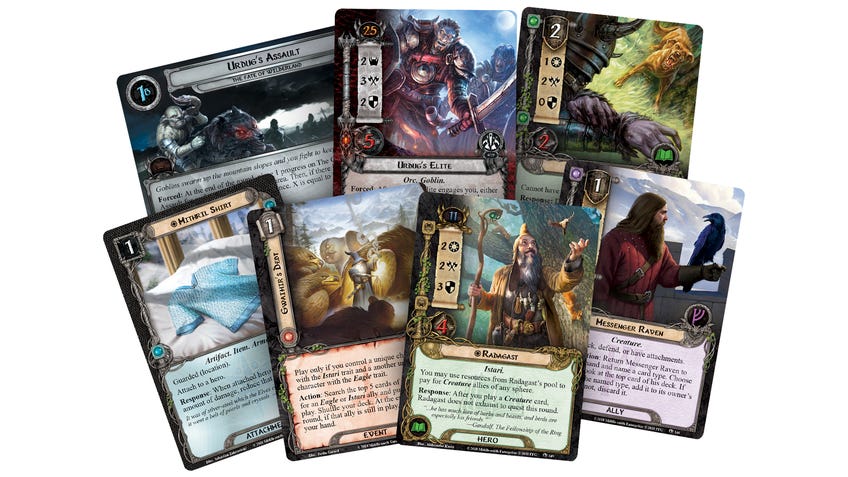
What does the Lord of the Rings setting really add to the experience?
French: The theme of fellowship and working together translates really well to a cooperative game. Travel and exploration was a big part of the original vision for the game. We wanted a game that captured the setting of Lord of the Rings and all the different places you can go. You also have this very clear conflict between good and evil, which I think works better in a cooperative game than in a competitive game, because most people don't want to be evil. It's a lot easier to feel animosity toward the encounter deck than toward another person when you're playing a competitive game.
When you do win it's on the same level of something like the ending of The Return of the King.
Caleb Grace: I like how that animosity toward the encounter deck over time sort of transformed into animosity towards the designers. People would email me sometimes saying things like “I curse you!” I would just add that the theme of things being so dark and that sense of ‘how can we possibly overcome this?’ really lends itself well to the tension felt in the game. You really have to come together in order to win, and when you do win, it's this really satisfying feeling, on the same level of something like the ending of The Return of the King. The odds seem so impossibly stacked against you, but then the victory feels so much sweeter for that.
Is there quite a strong community around this game in particular?
Maxine Newman: All of our LCGs we would categorise as ‘lifestyle games’. These are the kind of games that you will pour lots and lots of time into mastering and work together with other people to formulate the best strategies. By doing that you create a very strong-knit community. I think that cooperative games, in particular, have a really tight-knit community.
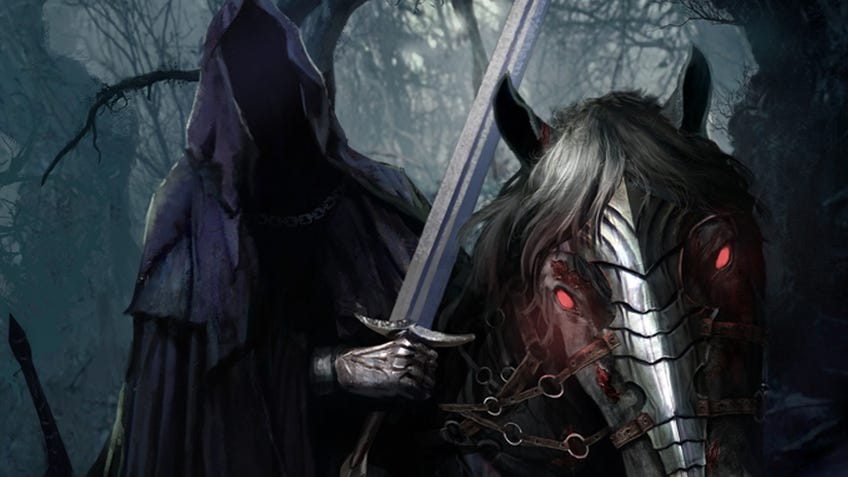
French: One thing regarding the community that I found fascinating is that Maxine came out of the Lord of the Rings community to Fantasy Flight because she was designing fan-made content. When the game came out, there were scenarios you could play through and Maxine was designing her own scenarios and putting them up - people were playing them and liking them better than the ones we were putting out. People liked this game so much that they're making more stuff to play.
How did the game evolve over the last decade? What challenges have you faced trying to keep things fresh?
Grace: I think one of the most important things that we learned early on was that we have a very broad fan base and everyone's playing at different skill levels. One of the first things we learned was that having just one standard difficulty was not enough; we needed to create an easy mode and a nightmare mode. We needed to make the game more modular, so that we could expand our reach and appeal to everyone in our audience. We learned early on that we really had to design for a whole spectrum of players, rather than just crafting one experience.
It's not just like a game that you sit down and play, you're also part of this overarching narrative
Newman: As the game went on, scenarios became more narratively driven. There was a lot going on that you had to remember, it was complex in terms of the focus on storytelling. I think that became more important over time, which I think was really good because it brought everyone together in this narrative. It's not just like a game that you sit down and play, you're also part of this overarching narrative that we're crafting.
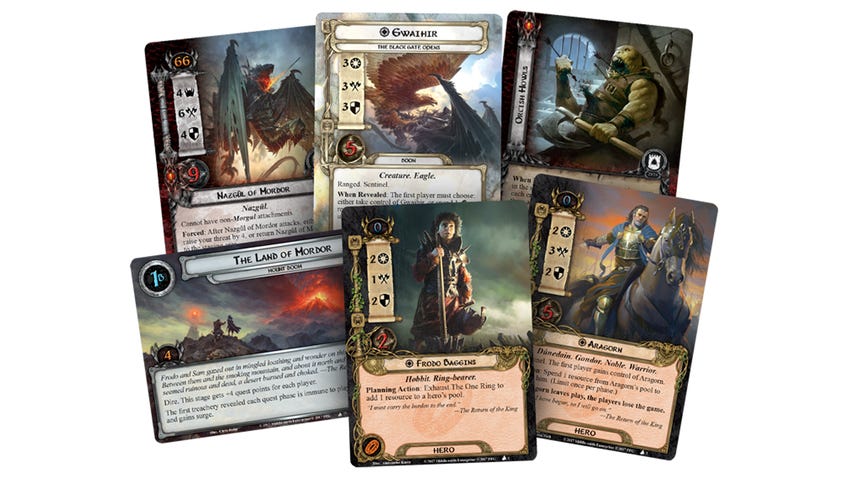
What kind of legacy do you think The Lord of the Rings LCG has left on the tabletop gaming industry and community?
Grace: I'm excited to answer this because it’s an opportunity to brag on Nate for a second, because he's too polite to do it himself. The Lord of the Rings: The Card Game is a genre-defining game. Prior to its release I don't believe there were any fully cooperative, fully customisable, expansive games like this. And the legacy is clearly seen in all of its successors. We have a couple of living card games that Fantasy Flight have - including the wonderful Arkham Horror LCG that MJ (Maxine Newman) and Nate created together. We also have the Marvel Champions LCG that Nate, myself and Michael Boggs created.
We've seen a lot of other games from other studios that also enter into that area and do some really creative and cool things too. I think it's a huge testament to this cool idea that Nate had at Gen Con, that manifested into something amazing, that we're still talking about over a decade later. The other games that have come from it are likely to leave their legacies. I really don't think that the impact of The Lord of the Rings: The Card Game can truly be overstated. It's quite a phenomenon.
The Lord of the Rings LCG has really blown open the doors for cooperative gaming.
Newman: I would say that before The Lord of the Rings: The Card Game, cooperative experiences in tabletop gaming were mostly either smaller, self-contained products in the $30 to $50 range. With roleplaying games being the other kind of cooperative experience. But after The Lord of the Rings LCG, I would say that it's really blown open the doors for cooperative gaming. I would say it's almost like equal parts now, where every other game that you see on the shelves are cooperative. I don't know if that's 100% because of Lord of the Rings. But I think that the timing works out.
French: It's also the solo element that adds a lot to the genre because there's been a lot of new customisable and collectible trading card games over the years. But a big obstacle for a lot of those games is when players don’t have anyone to play with. There's a lot of people out there who like the genre of the game, but they don't necessarily have a community of players ready to dive in and play with them. So any game in that genre that you can play solo is going to be very appealing to somebody in that situation.
Overwhelmingly people loved it and they wanted more.
When you created Lord of the Rings: The Card Game, did you have any idea that it would have the kind of legacy it has ten years later?
French: At the time, I didn't really know what to expect. It was something that was new and different. I wasn't sure what people were gonna make of it. The first real signs that we were onto something was when we demoed it at Gen Con, I think that was in 2008. We got a lot of great suggestions. Overwhelmingly people loved it and they wanted more. And that was our real sense of this being a really powerful opportunity in front of us, and let's not squander it.
Ashes: Rise of the Phoenixborn was recently re-released in a subscription form by Plaid Hat Games - would this model be something you’d consider at Fantasy Flight?
French: When we were first talking about the LCG as a new way to package our CCGs, we talked about how doing a subscription-based model might be really good for these monthly packs. But I think where the decision came down was that Fantasy Flight wanted to maintain working distribution relationships. It was talked about a little bit, but ultimately, the powers that be chose a different direction for the LCGs.
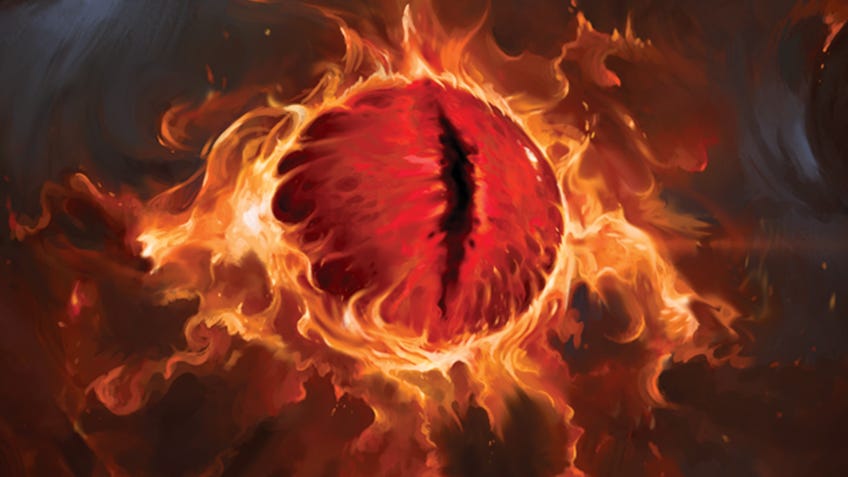
Newman: With Arkham, we’re moving away from the monthly packs and towards more self-contained standalone expansions. Which lends itself to not doing a subscription model for them, because they're bigger, heftier boxes with a higher price point. That being said, Marvel still does the monthly packs, or as close to monthly as we can get, right? So who knows?
If you could make a living card game on any licensed property, what would that be?
Grace: I'm a big fan of Star Trek and I would love to make a co-op Star Trek card game where you play as the Federation or the Klingons and build up your starship crew and on missions and explore strange new worlds.
It's about outreach and introducing the game to a new generation of players.
French: There were two that came to mind. Terminator is a setting that I'm a huge fan of and I would love to do some sort of Terminator game if the opportunity came along. The other one is Stephen King and I would love to work in some of his worlds with a card game at some point.
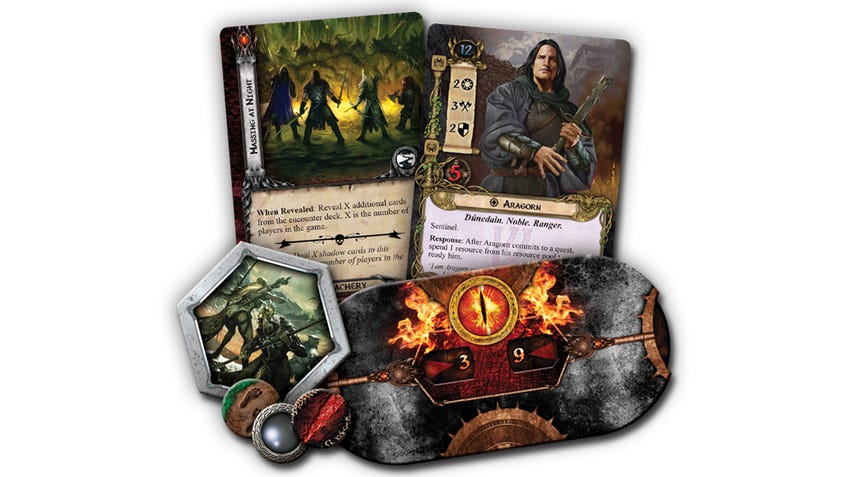
Newman: For my part, this is impossible to answer because I'm a big fan of lots of video game properties. The video game that I play the most is Destiny, I would love to do something with Destiny. That'd be amazing. I also have a self-published novel that I wrote that has its own unique setting. Let me do something in my setting!
What’s in the future for The Lord of the Rings: The Card Game?
French: We're going to still try to keep the community focused on new events as we move forward. It's about outreach and introducing the game to a new generation of players.
Newman: It's important to note that even without any new content, there's still so much to do. It has over 100 scenarios. I actually think now's a great time to jump in, because you've got everything laid out before you.
This interview has been edited for clarity and length.
